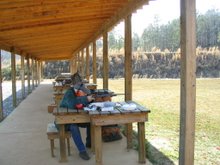Where there's a will there's a way! AMM
Military option 'less likely' after computer sabotage, as Israeli tests are revealed on Natanz nuclear model.
http://www.guardian.co.uk/world/2011/jan/16/stuxnet-cyberworm-us-strike-iran
The chances of a military strike against Iran this year are receding because of the success of a joint Israeli-US cyberattack on the country's nuclear facilities, according to officials and analysts with knowledge of the clandestine operation.
The New York Times reported that Israel, with US help, had set up a model of the Iranian nuclear process at Dimona, the Israeli nuclear arms development centre in the Negev desert, to test a sophisticated destructive programme.
A computer worm, Stuxnet, was known last year to have been inserted into the Iranian nuclear operation and Iran admitted its programme had been delayed.
What is new is the role of Dimona, where the Israelis are reported to have been spinning nuclear centrifuges virtually identical to Iran's nuclear plant at Natanz, and the extent of involvement by US researchers and intelligence agencies. The centrifuges are used to enrich uranium.
Last year, rumours of military action began to be heard louder round Washington, with diplomats and officials warning that this year would be the year of decision on whether to launch a military strike. But the mood has changed.
An official told the Guardian that the military option is now less likely, citing not only the cyberattack, but also the synchronised assassination last year of two Iranian nuclear scientists, attributed to Israel.
A leading analyst, Avner Cohen, the Washington-based author of Israel and the Bomb and Worst-Kept Secret: Israel's Bargain with the Bomb, also told this newspaper: "In the short term, it surely makes military action less likely. In fact, I do not see any military action against Iran anytime soon. It takes the pressure off. It does not mean military action is off the table, but it is not a short-term concern."
Cohen, from the Monterey Institute of International Studies, said he believed reports about testing the Stuxnet on centrifuges at Dimona and the involvement of the US were largely accurate.
"It makes good sense to me. It fits what I heard and knew," Cohen said.
The work at Dimona was carried out over the last two years, though neither Israel nor the US has admitted this.
The Iranian president, Mahmoud Ahmadinejad, said last November that malicious software had created problems in some of Iran's centrifuges, though he insisted the problems had been solved.
Meir Dagan, head of the Mossad, the Israeli overseas intelligence agency, gave an unusually upbeat assessment of progress on Iran in a report earlier this month, on the eve of his retirement. He said Iran's nuclear programme had been delayed by at least a year. The US secretary of state, Hillary Clinton, echoed this but she attributed the delay to economic sanctions.
According to the New York Times, the Stuxnet worm included one component designed to send Iran's centrifuges spinning out of control and another to record normal operations at the nuclear plant and then play them back so that everything would appear normal while the centrifuges were tearing themselves apart.
If true, it would be the biggest cyberattack yet launched anywhere in the world, outstripping those attributed to Russia and China.
The idea may have developed from work at the Idaho National Laboratory, part of the US energy department that deals with nuclear arms, which teamed up with international companies such as the German company Siemens to look at the risk from cyberattack.
Cohen attributed the close co-operation between Israel and the US to Dagan, who insisted that on the Iranian nuclear issues Israel must co-operate with intelligence organisations such as the CIA and MI6.
President George Bush, before leaving office in 2009, approved $300m (£189m) on joint covert projects aimed at Iran, and the Stuxnet was apparently a priority. It may have been responsible for destroying more than 900 centrifuges at Natanz.
The combination of the apparent intelligence successes and economic sanctions has increased western diplomats' confidence in talks with Iran this week, which have in the past invariably ended in deadlock.
Cohen said: "For the long run, while it is impossible to predict, my gut feeling is that Iran will not have the full bomb.The only thing that would push Iran to the bomb would be an attack on Iran. I think Iran would ultimately emerge smart enough to avoid confrontation with the world but would insist to keep themselves very close to the bomb, still within the NPT (Non-Proliferation Treaty) claiming the right to a fuel cycle. Whether the west and Israel would be able to live with that, I don't know."
A pre-emptive strike on Iran's nuclear sites by the US would likely provoke retaliatory attacks by Iranian "sleepers".
The London-based thinktank the Legatum Institute, in a report published today, warns that a military strike against Iran could result in retaliation. "In any strike, Iran would likely retaliate against US soldiers and assets in Afghanistan and Iraq, and might activate sleeper cells to launch al-Qaida-like attacks against the US homeland and in Europe."





No comments:
Post a Comment